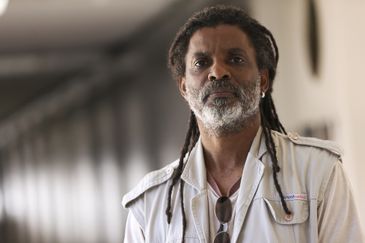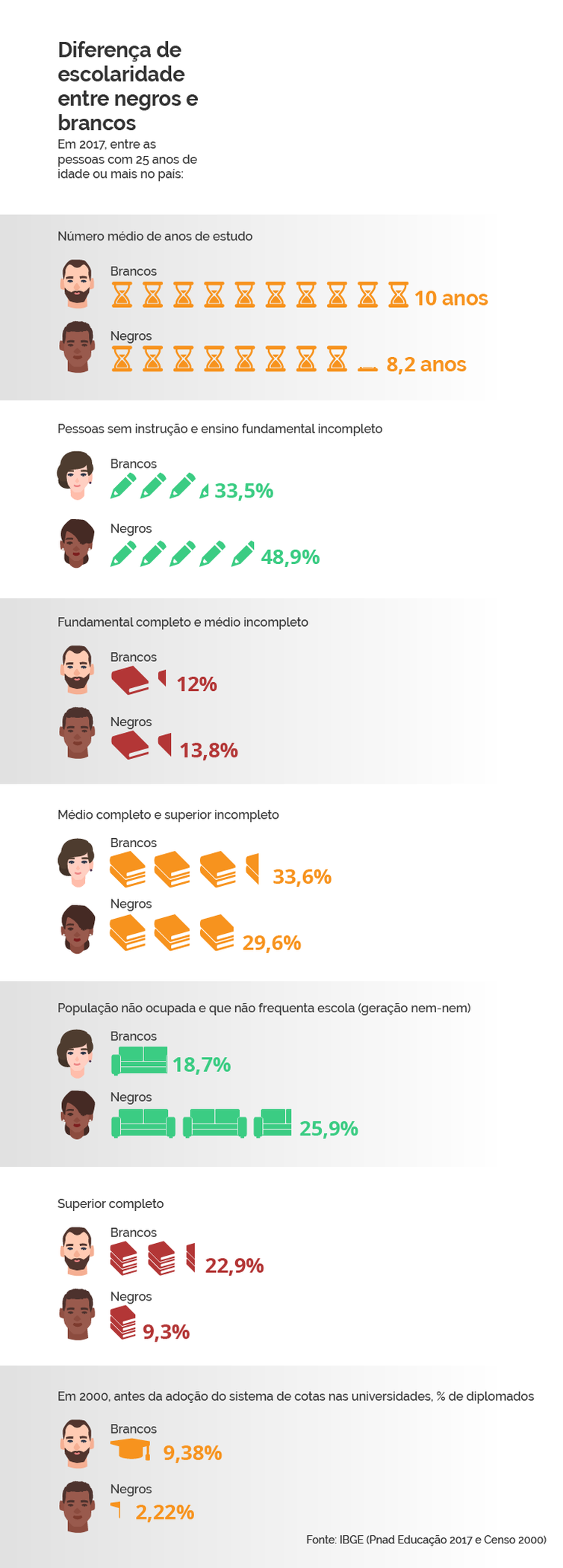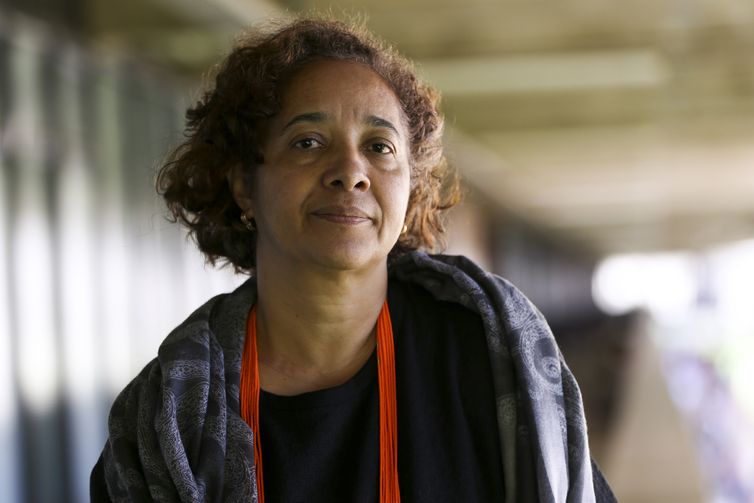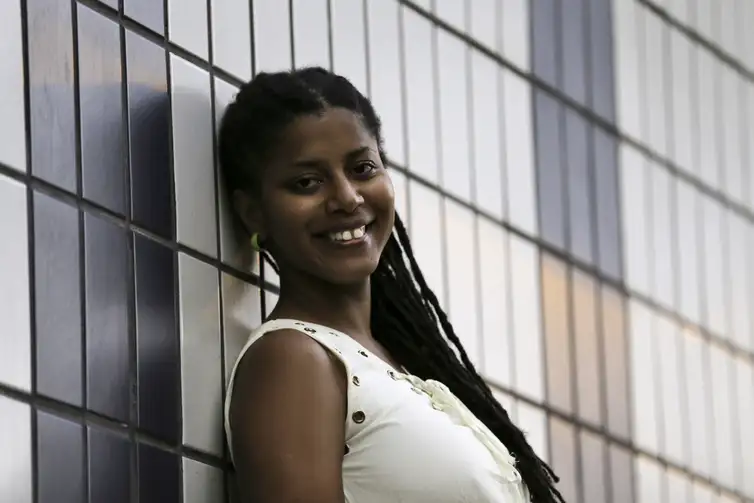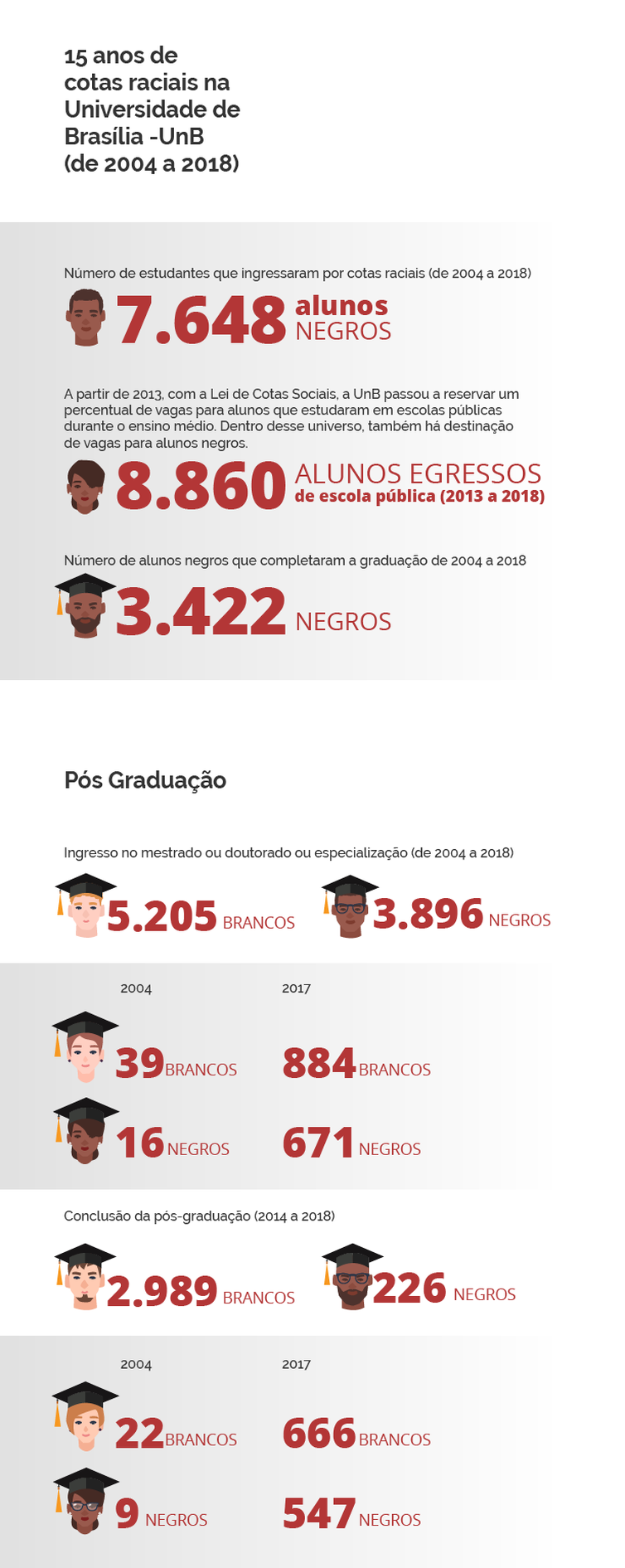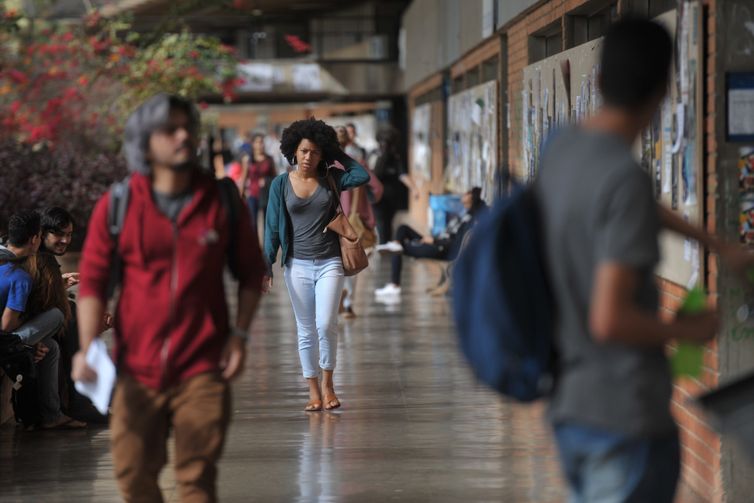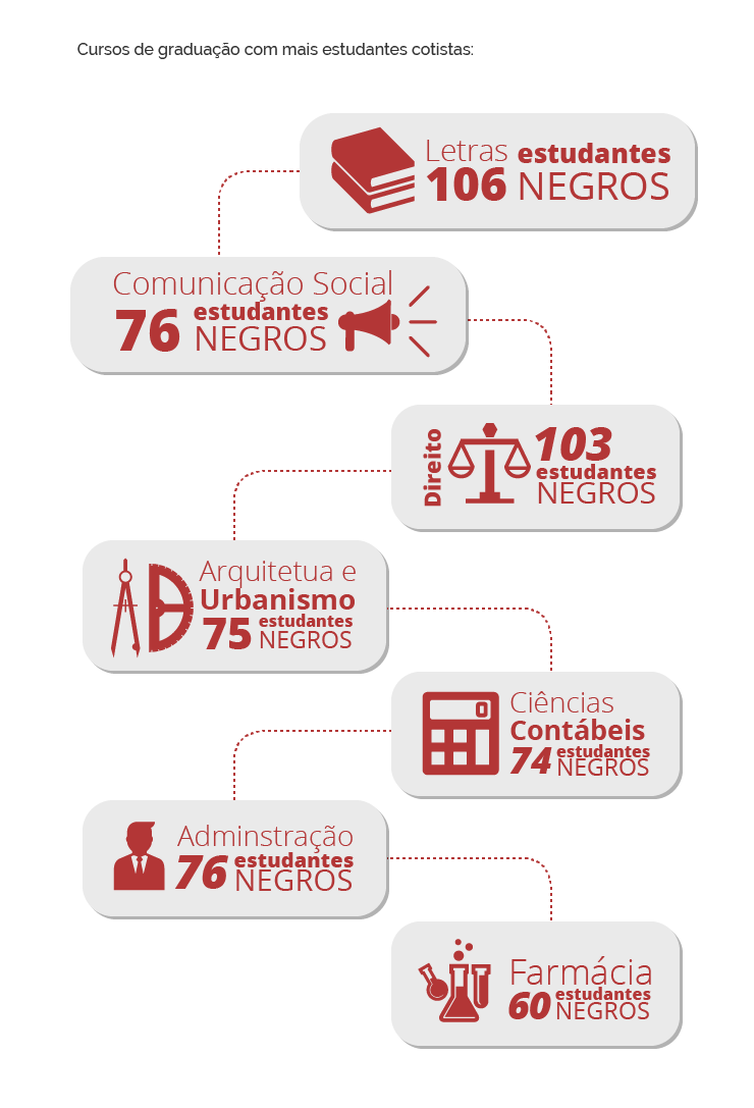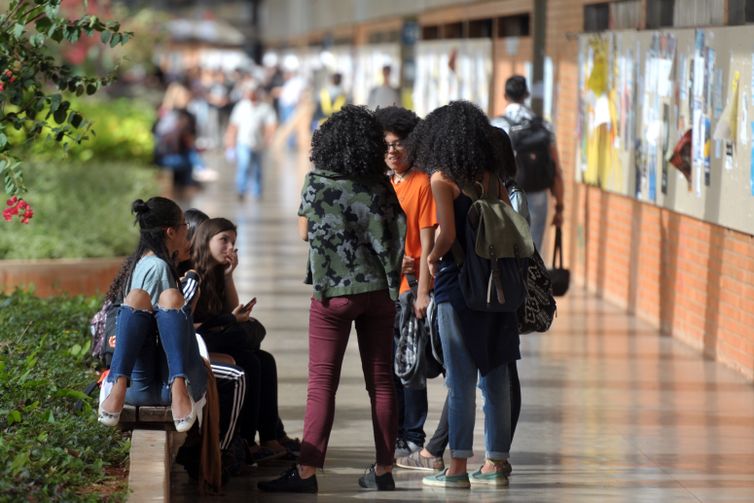Black women advance at the social level, but still lag behind at work and politics
At the present rate, it will take 80 years to achieve income equality
15/04/2018 2h00
Angela Pinho
São Paulo
Black woman, college educated, has a good job at a multinational corporation and, due to her efforts and talent, is recognized inside and outside of her career. This information tells the the story of Lisiane Lemos, 28, but not the whole story. She herself highlights this: "Don't take me as the rule. I had a lot of opportunities, I am the exception".
From the time Lisiane was a child to the time she became a solution specialist at Microsoft and ended up on Forbes magazine, black women in Brazil had considerable progress in social indicators, especially in education.
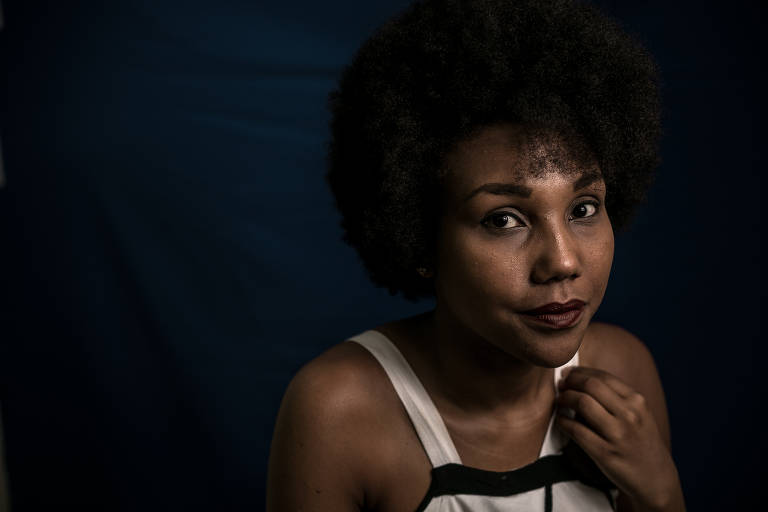
Leticia Silva, 22, a law student from the periphery of São Paulo, is the first generation of her family to access higher education. Keiny Andrade/Folhapress/Folhapress
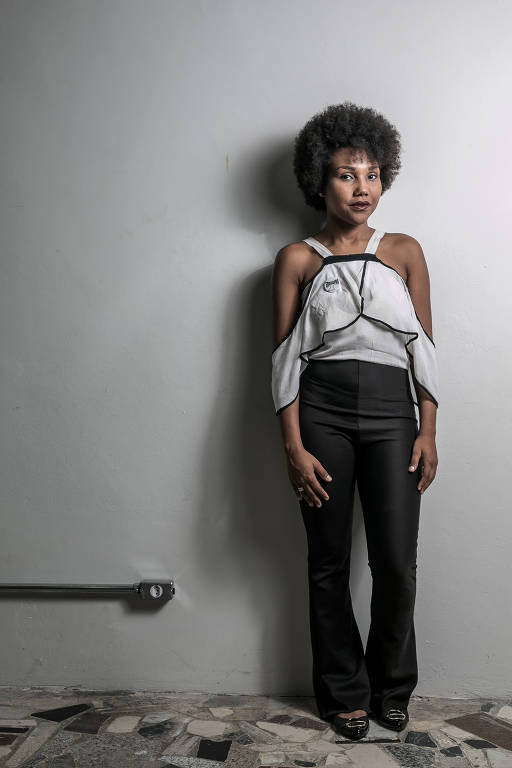
Leticia Silva, 22, a law student from the periphery of São Paulo, is the first generation of her family to access higher education. Keiny Andrade/Folhapress/Folhapress
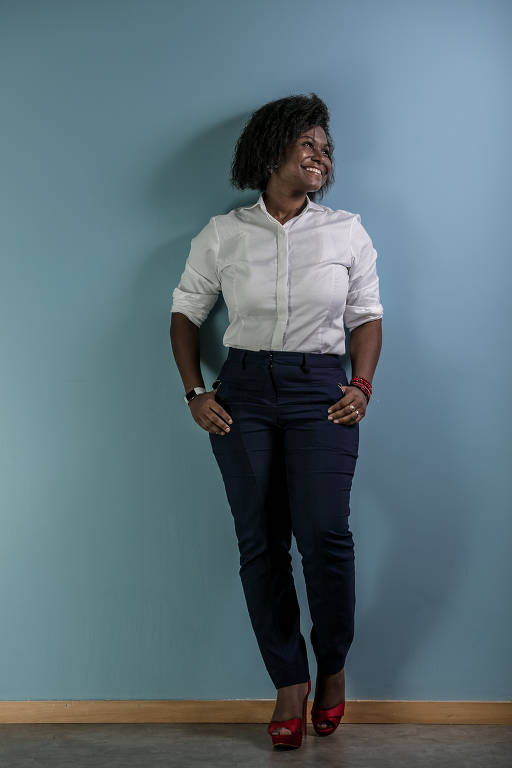
Lisiane Lemos is a black solution specialist at Microsoft and activist for a greater integration of black professionals in companies. Keiny Andrade/Folhapress/Folhapress
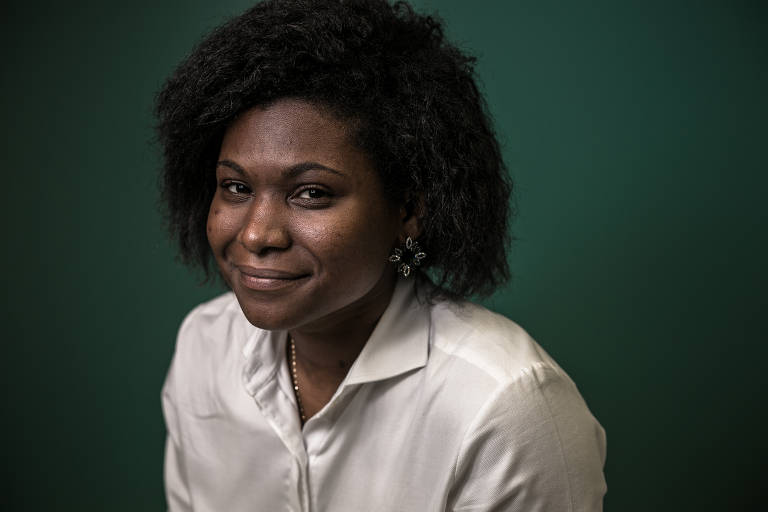
Lisiane Lemos is a black solution specialist at Microsoft and activist for a greater integration of black professionals in companies. Keiny Andrade/Folhapress/Folhapress
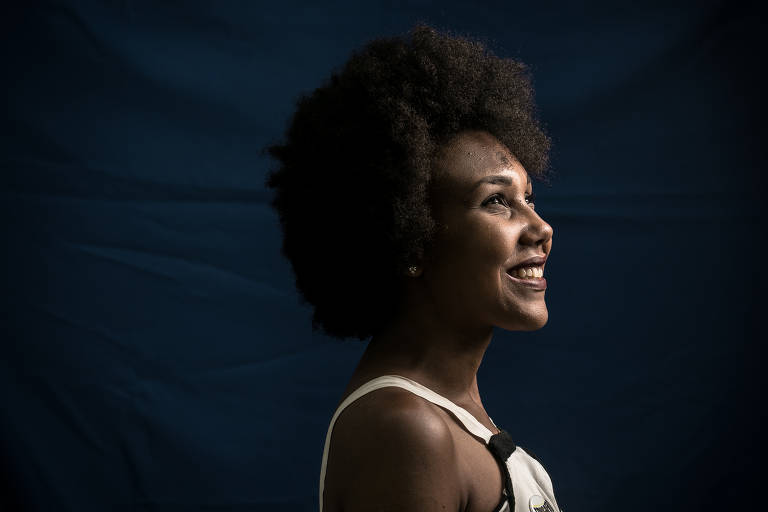
Leticia Silva, 22, a law student from the periphery of São Paulo, is the first generation of her family to access higher education. Keiny Andrade/Folhapress/Folhapress
Equality, however, is still far from being achieved in universities, the labor market and in politics. For instance, a black woman's income is 42% that of a white man. At the last 25 years' rate, it will take more than 80 years for it to be equivalent.
The discrepancies gain prominence at the time Geledés — Instituto da Mulher Negra, a landmark in the debate about gender and race, turns 30 years old. The entity came about after the identification of a lacuna, states its president, Maria Sylvia Aparecida de Oliveira.
"Neither the black movement nor the predominantly white feminist movement had answers for the violation of black women's rights", she says. "In spite of the progress in recent years, they are still underrepresented in the public and private spheres."
ADVANCEMENTS
Education concentrates a large part the advancements, according to a comparison made between a set of indicators from 1992 and 2016 from IBGE — Brazilian Institute of Geography and Statistics.
The most recent ones are part of the report about Gender Statistics that was recently published by the institute and made from the PNAD Contínua — Continuous National Household Sample Survey, with monthly surveys. At Folha's request, the oldest ones were tabulated by the institute based on the National Household Sample Survey which, at the time, was still annual.
The two surveys consider self-declared preta and parda women black (negras). The difference in timing might produce some statistical variance, but they show clear tendencies.
The most positive ones are among children. In 1992, only 77% of black girls in the elementary school age were enrolled in this stage. Almost 25 years later, this happens with almost all of them (97%).


The illiteracy rate, although it still has room for improvement, fell from 26% to 9% among them (aged 15 and more), a little higher than the national average.
When it comes to the university level, however, inequality shows that it is more persistent.
The completion rate for higher education of black women, although it has improved a lot (more so than black men's completion rate), was still 15% in 2016, just a little higher than white women's completion rate a quarter-century ago (white women reached 32% in 2016). The indicator considers the 27–30 age group.


A resident of the periphery of São Paulo, Leticia Gabrielle Silva, 22 years old, says it was in college where she started paying attention to her blackness, in classrooms where she could count with one hand classmates with the same skin color.
A student at a private institution, on a scholarship given by the Educafro organization, she realized how, for instance, in high school, the black man was always portrayed as a slave. This observation was important for her career decision — she wants to work in the third sector, acting in favor of diversity.
"I know I lose opportunities for being a black woman", she says. "But, just like how there were black slaves, I know there are black people who make it."


SLOW PACE
"Making it" is hard especially for black women in politics and the corporate world, according to data from other sources.
Representatives such as Marielle Franco (PSOL-RJ), assassinated a month ago, are just 5% of the candidates elected for the Municipal Chambers in 2016, according to the Supreme Federal Court. They have only 3% of the prefectures. White women are also considerably underrepresented, with only 8% of both positions.


If politics are still overwhelmingly masculine, the top of the corporate world is still predominantly white.
According to a 2016 survey from Instituto Ethos, black women in that year occupied only 0.4% of executive positions in the country's biggest companies.
For Lisiane, more significant changes in leadership profiles in the private sector should appear in ten to 15 years. According to her, however, it is already possible to notice some progress, and the main thing is that never before has there been so many discussions about this topic.



Technology companies like hers have created committees of black employees and policies for promoving more diversity, and there are programs in other sectors, such as the banking and investment sectors.
"We must bring people who never pictured themselves in the corporate world, young people who know they can become their company's chairman and know that other people can help them, like they helped me", said Lisiane.
Black women advance at the social level, but still lag behind at work and politics
At the present rate, it will take 80 years to achieve income equality
15/04/2018 2h00
Angela Pinho
São Paulo
Black woman, college educated, has a good job at a multinational corporation and, due to her efforts and talent, is recognized inside and outside of her career. This information tells the the story of Lisiane Lemos, 28, but not the whole story. She herself highlights this: "Don't take me as the rule. I had a lot of opportunities, I am the exception".
From the time Lisiane was a child to the time she became a solution specialist at Microsoft and ended up on Forbes magazine, black women in Brazil had considerable progress in social indicators, especially in education.

Leticia Silva, 22, a law student from the periphery of São Paulo, is the first generation of her family to access higher education. Keiny Andrade/Folhapress/Folhapress

Leticia Silva, 22, a law student from the periphery of São Paulo, is the first generation of her family to access higher education. Keiny Andrade/Folhapress/Folhapress

Lisiane Lemos is a black solution specialist at Microsoft and activist for a greater integration of black professionals in companies. Keiny Andrade/Folhapress/Folhapress

Lisiane Lemos is a black solution specialist at Microsoft and activist for a greater integration of black professionals in companies. Keiny Andrade/Folhapress/Folhapress

Leticia Silva, 22, a law student from the periphery of São Paulo, is the first generation of her family to access higher education. Keiny Andrade/Folhapress/Folhapress
Equality, however, is still far from being achieved in universities, the labor market and in politics. For instance, a black woman's income is 42% that of a white man. At the last 25 years' rate, it will take more than 80 years for it to be equivalent.
The discrepancies gain prominence at the time Geledés — Instituto da Mulher Negra, a landmark in the debate about gender and race, turns 30 years old. The entity came about after the identification of a lacuna, states its president, Maria Sylvia Aparecida de Oliveira.
"Neither the black movement nor the predominantly white feminist movement had answers for the violation of black women's rights", she says. "In spite of the progress in recent years, they are still underrepresented in the public and private spheres."
ADVANCEMENTS
Education concentrates a large part the advancements, according to a comparison made between a set of indicators from 1992 and 2016 from IBGE — Brazilian Institute of Geography and Statistics.
The most recent ones are part of the report about Gender Statistics that was recently published by the institute and made from the PNAD Contínua — Continuous National Household Sample Survey, with monthly surveys. At Folha's request, the oldest ones were tabulated by the institute based on the National Household Sample Survey which, at the time, was still annual.
The two surveys consider self-declared preta and parda women black (negras). The difference in timing might produce some statistical variance, but they show clear tendencies.
The most positive ones are among children. In 1992, only 77% of black girls in the elementary school age were enrolled in this stage. Almost 25 years later, this happens with almost all of them (97%).


The illiteracy rate, although it still has room for improvement, fell from 26% to 9% among them (aged 15 and more), a little higher than the national average.
When it comes to the university level, however, inequality shows that it is more persistent.
The completion rate for higher education of black women, although it has improved a lot (more so than black men's completion rate), was still 15% in 2016, just a little higher than white women's completion rate a quarter-century ago (white women reached 32% in 2016). The indicator considers the 27–30 age group.


A resident of the periphery of São Paulo, Leticia Gabrielle Silva, 22 years old, says it was in college where she started paying attention to her blackness, in classrooms where she could count with one hand classmates with the same skin color.
A student at a private institution, on a scholarship given by the Educafro organization, she realized how, for instance, in high school, the black man was always portrayed as a slave. This observation was important for her career decision — she wants to work in the third sector, acting in favor of diversity.
"I know I lose opportunities for being a black woman", she says. "But, just like how there were black slaves, I know there are black people who make it."


SLOW PACE
"Making it" is hard especially for black women in politics and the corporate world, according to data from other sources.
Representatives such as Marielle Franco (PSOL-RJ), assassinated a month ago, are just 5% of the candidates elected for the Municipal Chambers in 2016, according to the Supreme Federal Court. They have only 3% of the prefectures. White women are also considerably underrepresented, with only 8% of both positions.


If politics are still overwhelmingly masculine, the top of the corporate world is still predominantly white.
According to a 2016 survey from Instituto Ethos, black women in that year occupied only 0.4% of executive positions in the country's biggest companies.
For Lisiane, more significant changes in leadership profiles in the private sector should appear in ten to 15 years. According to her, however, it is already possible to notice some progress, and the main thing is that never before has there been so many discussions about this topic.



Technology companies like hers have created committees of black employees and policies for promoving more diversity, and there are programs in other sectors, such as the banking and investment sectors.
"We must bring people who never pictured themselves in the corporate world, young people who know they can become their company's chairman and know that other people can help them, like they helped me", said Lisiane.
Black women advance at the social level, but still lag behind at work and politics




